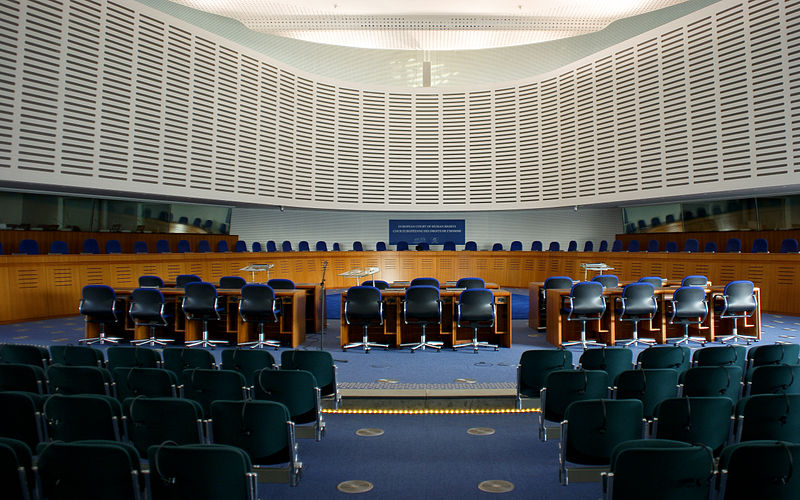
A v Azerbaijan & 24 other applications (third party intervention)
REDRESS, along with two other organisations, submitted a third-party intervention in a case of alleged unlawful and arbitrary arrest and detention of a number of members of the Azerbaijani LGBTIQ+ community and their subsequent ill-treatment and forced medical examination.
BACKGROUND
In mid-September 2017, the Azerbaijani police launched a series of raids in Baku as part of a crackdown on prostitution. A and the other twenty-four applicants belonging to the LGBTIQ+ community were arrested and subjected to ill-treatment and forced medical examinations by police officers and custodial staff while in detention.
The applicants complain that their arrest and detention were unlawful and arbitrary, and that they were identified on the basis of their sexual orientation and gender identity. Moreover, they allege that the authorities did not conduct an effective investigation into their ill-treatment and forced medical examination.
ACTION FOR JUSTICE
With a letter dated 9 October 2017, the Commissioner for Human Rights of the Council of Europe demanded formal explanations from the Azerbaijani Minister of Internal Affairs, in particular with regard to the identification of the detained individuals based on their sexual orientation and gender identity, and to allegations of ill-treatment and forced medical examinations.
A few days later, on 13 October 2017, a group of UN experts, including the Independent Expert on protection against violence and discrimination based on sexual orientation and gender identity, the Special Rapporteur on the right of everyone to the enjoyment of the highest attainable standard of physical and mental health and the Chair-Rapporteur of the Working Group on Arbitrary Detention, published a statement calling the Azerbaijani authorities to “investigate promptly and thoroughly all allegations of torture and ill-treatment and ensure that perpetrators are prosecuted and, if convicted, punished with adequate sanctions”.
Between March and April 2018, A and the other twenty-four applicants lodged their applications with the European Court of Human Rights (ECtHR) alleging multiple violations of their European Convention rights, in particular Articles 3 (prohibition of inhuman or degrading treatment), 5 (right to liberty and security), 6 (right to a fair trial), 8 (right to respect for private life) and 14 (prohibition of discrimination).
INTERVENTION
REDRESS submitted a third-party intervention along with ILGA-Europe (the European Region of the International Lesbian, Gay, Bisexual, Trans and Intersex Association) and Civil Rights Defenders.
The submission argued the following:
- States have a heightened obligation to protect vulnerable persons and certain minority or marginalized individuals or populations especially at risk of torture, and, taking into account the the vulnerability of LGBTIQ+ persons to discriminatory violence, the discriminatory use of mental or physical violence is an important indicator that an act constitutes torture;
- the forced medical examination of detainees may amount to a breach of Articles 3 and 8 of the Convention if the individual subjected to the medical examination is particularly vulnerable and the examination is carried out with discriminatory motives;
- States have specific obligations adequately to investigate allegations of ill-treatment and torture with discriminatory elements;
- Azerbaijan’s hate crime law does not include gender identity and sexual orientation as protected grounds, and authorities there are generally hostile towards LGBTIQ+ persons – both are factors which contribute to heightening the vulnerability of individuals belonging to the LGBTIQ+ community.
OUTCOME
After the parties failed to reach a negotiated settlement of the case (a ‘friendly settlement’), the government proposed making a ‘unilateral declaration’ – something they are entitled to do under the ECtHR’s rules – and on this basis asked the Court to bring the cases to an end (or ‘strike them out’). The unilateral declaration proposed included an admission that Azerbaijan had violated the Convention, and an offer to pay compensation. The victims disagreed with this proposal on the basis that they wanted more specificity over the precise violations being admitted, that the compensation offered was inadequate, that the government had not promised to investigate the violations alleged, and that this was the first such case against Azerbaijan regarding the rights of the LGBITQ+ community and should therefore be considered in full by the Court.
On 19 March 2024, the Court issued a short judgment confirming that the cases should all be ‘struck out’ on the basis that the proposed universal declaration was sufficient, and that “respect for human rights as defined in the Convention… does not require it to continue the examination of the applications”.
The substantive elements of the intervention were not addressed by the Court in its judgment.
QUICK FACTS
Case name: A V AZERBAIJAN AND 24 OTHER APPLICATIONS
Court/Body: European Court of Human Rights
Date filed: 15 July 2019 (third-party intervention)
Current status: Decision reached
Date of final decision: 19 March 2024
Interveners: ILGA-Europe, Civil Rights Defenders and REDRESS
